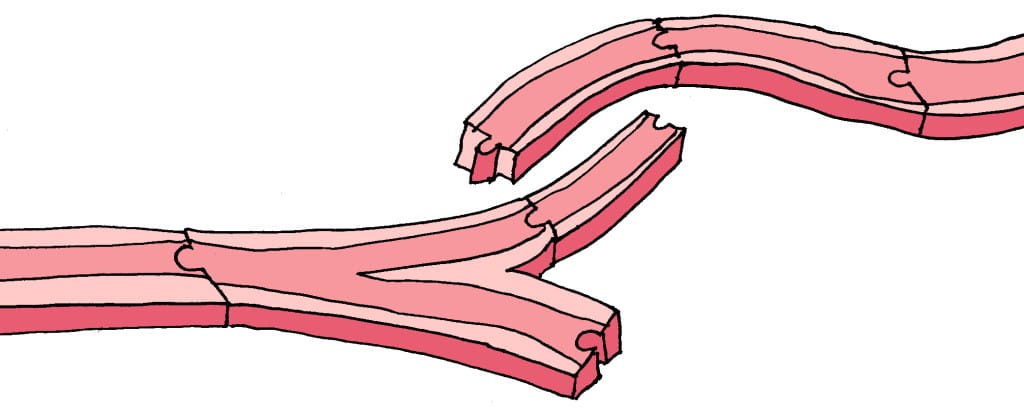It’s a fact that after nearly one hundred years’ research on psychosis, we don’t know with certainty what causes them. Both environmental and hereditary factors appear to play a role. However, recent genetic research has not brought us any closer to a biological explanation of why psychosis arise, and in 2008 we are actually back to square one with regard to finding genes that may cause psychosis.
On the environmental side it is clear that growing up and living in a large city is associated with an increased risk for developing psychosis. Children of immigrants are also at greater risk. This tells us that stress of various kinds plays a role. Drug abuse is also a risk factor, and in some cases the emergence of psychosis is connected traumas or assaults in childhood and adolescence.
A psychotic episode is always triggered by stress. However, what is stress for me is may not necessarily be stress for you. We are all different, and react differently to different events. Some can tolerate more than others, some are more nervous, and we all have our strong and weak sides, or vulnerabilities. For that reason we refer to perceived stress, or using a more technical term, “individual-specific stress”.
The psychosis is connected with changes in the way the brain functions. Every time we hear or see something, thousands of impulses are transmitted through the various pathways of the brain. One of the brain’s key tasks is to transmit information from one part of the brain to another. This takes place by means of special chemical messengers that can move between the cells.

When someone is in a psychotic state, the entire messenger system is out of balance, and we speak of a kind of short-circuiting – like when the wiring at home is overloaded. The signals are fired at random, and internal and external impulses cross one another. In short, chaos. This can also be caused by a chemical imbalance in parts of the brain – sometimes too much, sometimes too little of these chemical messengers. The signal pathways in the brain may be compared to railway tracks. In a psychotic state the points (or switches) are “locked” in the wrong position, so that the impulses in the brain take the wrong pathways. For that reason, for example, external stimuli cross over onto the tracks that a person’s own thoughts usually proceed along. And that is also why a person in a psychotic state cannot tell his own thoughts from external sensations. This is the background for the change the patient experiences.
Moreover, as mentioned earlier, the ability to distinguish between oneself and the outside world is defective or at times completely gone.
We are actually only at the early stages of understanding what happens when someone develops a psychotic disorder. A lot of research remains before we have a clear picture of the causes and how they can be affected by treatment.